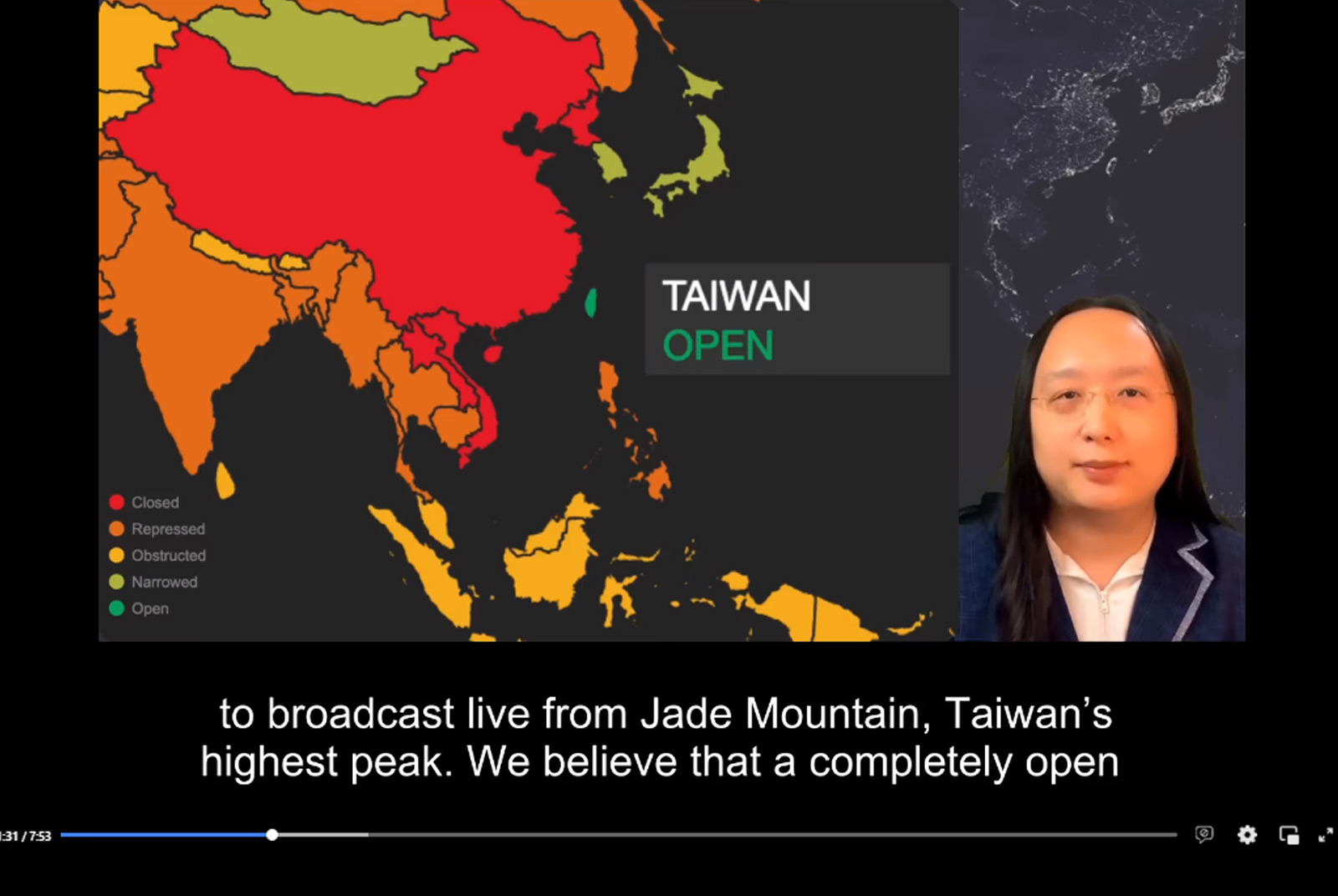Digital democracy with the people

Source:Audrey Tang's Facebook
In the Summit for Democracy hosted by the US, Digital Minister Audrey Tang encouraged all nations to consider Taiwan's example of open digital development and privacy safeguards.
Views
Digital democracy with the people
By Audrey Tangweb only
The U.S. Government held the Summit for Democracy Dec. 9 and 10, and invited leaders and representatives from more than 100 countries around the world to attend. It’s my honor to represent Taiwan at the summit, along with Hsiao Bí-khîm, our representative in the U.S.
The uniqueness of Taiwan’s democracy lies in the close connection with the Internet. From the lifting of martial law in 1987 to the first direct presidential election in 1996, to the social movements in recent years, the democratization of Taiwan and the progress of the popularization of the World Wide Web have developed simultaneously. This approach has not only paved the way for political change, but also unleashed a wave of youth and civic participation in public affairs. For Taiwanese people, democracy is like a social technology — it can only be enriched through the joint efforts of all.
Therefore, our government insists that broadband is a human right. Through digital infrastructure, we reduce the cost for civic technologies. Our network infrastructure allows everyone to broadcast live from Jade Mountain, Taiwan’s highest peak. We believe that a completely open and uncensored environment with free speech is perfect for letting digital democracy flourish.
Just like how reliable infrastructure makes our lives safer and more convenient, public infrastructure in the digital realm does the same for democracy. As an example, in 2015, civic technologists invented Airbox, a low-cost air quality tracker. Airbox is now in a variety of places, from schools to household balconies. Citizen science supplemented the government’s limited capacity and exemplified data stewardship and environmental education. The following year, the government initiated the Civil IoT Taiwan program, the first time we classified infrastructure budgets into the digital realm. Originally, there were 2,000 Airbox devices islandwide; now there are tens of thousands.
The next step after data sharing is forming shared goals through assistive intelligence. For instance, people largely welcomed Uber’s entry to Taiwan in 2015, but it also triggered taxi driver discontent. With the assistance of the g0v community, the government utilized the pol.is system to invite stakeholders to exchange views, and we have learned that shared values are hiding in plain sight. For example, safety is a shared value on which all parties agree, and the rough consensus is that drivers need to have professional licenses, purchase insurance, and pay taxes – all ratified in the Diversified Taxi Program of 2016.
The same idea can be applied to the discussion among countries. For instance, the AIT@40 Digital Dialogues in 2019 and the 2020 Cohack hackathon both used the Pol.is. With a visualized spectrum of opinion, participants can see where they stand compared with others. Thus, people can reflect and co-create a “good enough” consensus.
With shared values, our foremost priority today is institutionalizing the rapid deployment of social innovations. Taiwan’s Presidential Hackathon has been held for four consecutive years. Each year, thousands of social entrepreneurs and public servants participate alongside teams from dozens of countries to contribute to our public digital infrastructure. Five teams each year receive this trophy, carrying the presidential promise of support in the next fiscal year.
With these innovations, we have combated the pandemic with no lockdowns and the infodemic with no takedowns, it is because we trust citizens to participate in policymaking can form shared goals, develop innovative solutions, including the mask distribution system and SMS-based contact tracing system. This people-public-private partnership is a model we’re proud to share.
Democracy in Taiwan has not only confirmed its universal value, but also explored the future of democracy through our innovations. I am very happy to share Taiwan’s experience through the Democracy Summit. As we stated in the National Statement: Democracy in Taiwan isn’t just for the people, but with the people.
About the author:

Audrey Tang is Taiwan's first Digital Minister. She plays a key role in combating foreign disinformation campaigns & in formulating Taiwan's COVID-19 digital response. She is one of the key people championing the Taiwan Model.
Have you read?
♦ 1922 Vaccine Appointment System
♦ Overturning the future, collectively
Uploaded by Penny Chiang






